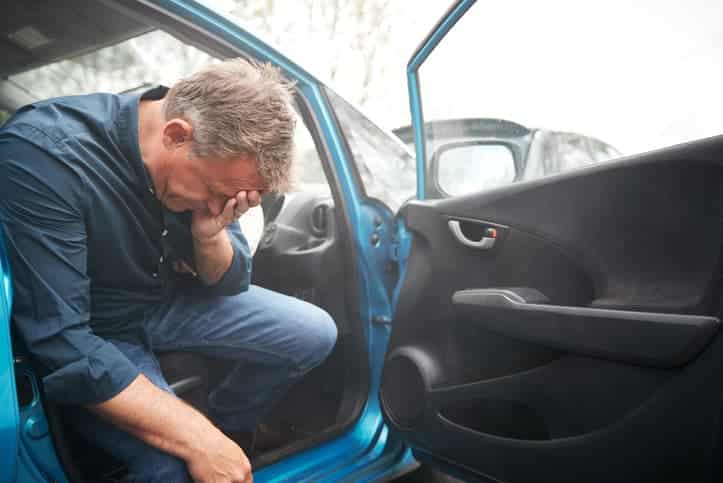What To Expect Physically After A Car Accident

Car accidents occur daily, causing severe injuries or death. The International Institute for Highway Safety (IIHS) reports that in 2020, more than 35,700 car accidents in the United States resulted in fatalities. According to the National Security Council (NSC), 4.8 million people received medical treatment for injuries sustained in car accidents that same year.
Those injured in car accidents face varying physical challenges. Understanding what to expect after a car accident ensures you seek appropriate medical and legal assistance promptly, ensuring you receive the health and legal care you need.
What happens to your body after a car accident?
Car accidents typically involve impact with a vehicle, pedestrian, animal, or stationary object. What can happen to your body after a car accident depends on the nature and severity of your injuries. These are common physical injuries caused by car accidents.
Broken Bones
Compound fractures occur when broken bones pierce the skin. Partial fractures refer to bones that are in one piece but have a crack. Closed fractures are broken bones that don’t penetrate the skin. Some broken bones may require surgery to reset the bones. A broken wrist bone may heal in a month, while it may take more than four months for a fractured tibia to heal.
Burns
Your skin can burn when it comes in contact with chemicals or fire. First-degree burns refer to damage to the outer layer of skin, while third-degree burns affect all layers of skin. First-degree burns can heal within a week with topical treatment. Third-degree burns may require skin grafts, and it can take up to two years for the skin to heal.
Internal Injuries
Internal injuries from car accidents can include a ruptured spleen, bruised organs, or internal bleeding. A ruptured spleen may need surgery and take up to three months to heal. Bruised organs may require hospitalization for treatment, although minor bruising may heal within a few days.
Shock
Shock prevents your body from distributing oxygen and blood to your organs. Shock is a severe and life-threatening condition that requires medical treatment. The recovery period can last for hours, days, or weeks.
Spinal Cord Injuries (SCIs)
SCIs occur when a person suffers severe damage to their spinal cord or the nerves connected to the spinal cord. Symptoms include back pain, paralysis, weakness, or numbness. Many people with SCIs need rehabilitation to regain strength after their injury. SCIs include permanent paralysis, which is incurable. Other SCIs may take years to heal.
Traumatic Brain Injuries (TBIs)
Penetration of the brain or a blow to the head can cause a TBI. Symptoms can include blurred vision and disorientation. People may be confused or have trouble remembering things after suffering a TBI. Mild TBIs can heal in as little as a week, but older patients will take longer to heal. Severe TBIs can be permanent.
Whiplash
Whiplash occurs when a person’s neck jolts back and forth. Victims may not develop symptoms for up to 24 hours after the accident. Symptoms include neck pain, headaches, dizziness, fatigue, numbness, and limited range of motion. Severe whiplash can cause permanent damage, while mild cases can heal within three months. Some people may need injections or physical therapy, while others may recover with rest, ice, and painkillers.
How can you know if you’ve suffered a physical injury?
Physical symptoms indicate you have a physical injury. Common symptoms include:
- Abdominal pain. Pressure from your seatbelt can cause bruising. Abdominal pain could be a sign of internal bleeding or organ damage.
- Bruising. Damaged blood vessels cause skin discoloration, known as bruising. Bruises on your skin typically heal within two weeks.
- Fatigue. Fatigue’s a common symptom of a TBI, and you may also experience fatigue after a concussion or whiplash.
- Headaches. Several injuries cause headaches, including whiplash and TBIs.
- Pain. Pain can be a sign of a bruised organ or internal damage. You may also have localized pain if you got whiplash, an SCI, or broke a bone.
- Swelling. Bruising, broken bones, whiplash, and muscle damage can all cause swelling. Swelling is a common sign of an internal injury that may require medical treatment.
Can mental health issues from a car accident affect you physically?
Your mental health can cause physical symptoms or impact your ability to heal from your injuries. Car accidents can cause severe mental health issues requiring treatment.
Mental health issues caused by car accidents include:
- Extreme Anxiety
- Depression
- Phobias
- Posttraumatic Stress Disorder (PTSD)
What should you do after a car accident?
Assess your physical condition after a car accident. If possible, follow your self-assessment with these steps:
- Assess the condition of others involved in the accident.
- Call for medical assistance.
- Contact the authorities.
- Supply your contact and insurance information to other drivers.
- Get contact and insurance information from other drivers.
- Take photos of the accident scene.
- Get the contact information for witnesses.
- Contact a car accident attorney.
Seeking Legal Advice
Several factors can contribute to car accidents, including poor vehicle maintenance, weather, poor road conditions, and negligence. Your car accident attorney can determine whether you have grounds to pursue a lawsuit and receive compensation. You don’t assume any financial risk when hiring a lawyer because they only charge fees when you win your case. Your lawyer will communicate with the at-fault party and the insurance companies, allowing you to focus on your recovery after your accident.
Hiring A Car Accident Attorney
Contact an experienced car accident attorney licensed to practice in the area where the accident occurred. These legal experts are familiar with local traffic laws that could impact your case. Your lawyer will fight to ensure you receive compensation for property damage, physical injuries, and loss of income stemming from your accident.
Car accident injuries may require prolonged hospitalization or outpatient treatment. No matter how minor or severe, your car accident attorney will help you navigate the financial, physical, and legal issues from your accident.
Sources
Fatal Facts 2020: Fatal Crash Totals. (2022).
NSC Injury Facts: Overview. (2022).
What is Posttraumatic Stress Disorder (PTSD)? (2020).
About the Author

Jack G. Bernstein, ESQ.
Jack Bernstein is a hard-working and highly motivated personal injury attorney in Miami, Florida with over three decades of experience. He is a strategist and idea person, with a genuine passion for helping his firm’s clients. If you’ve been injured, contact Jack Bernstein today for a free evaluation of your case.
